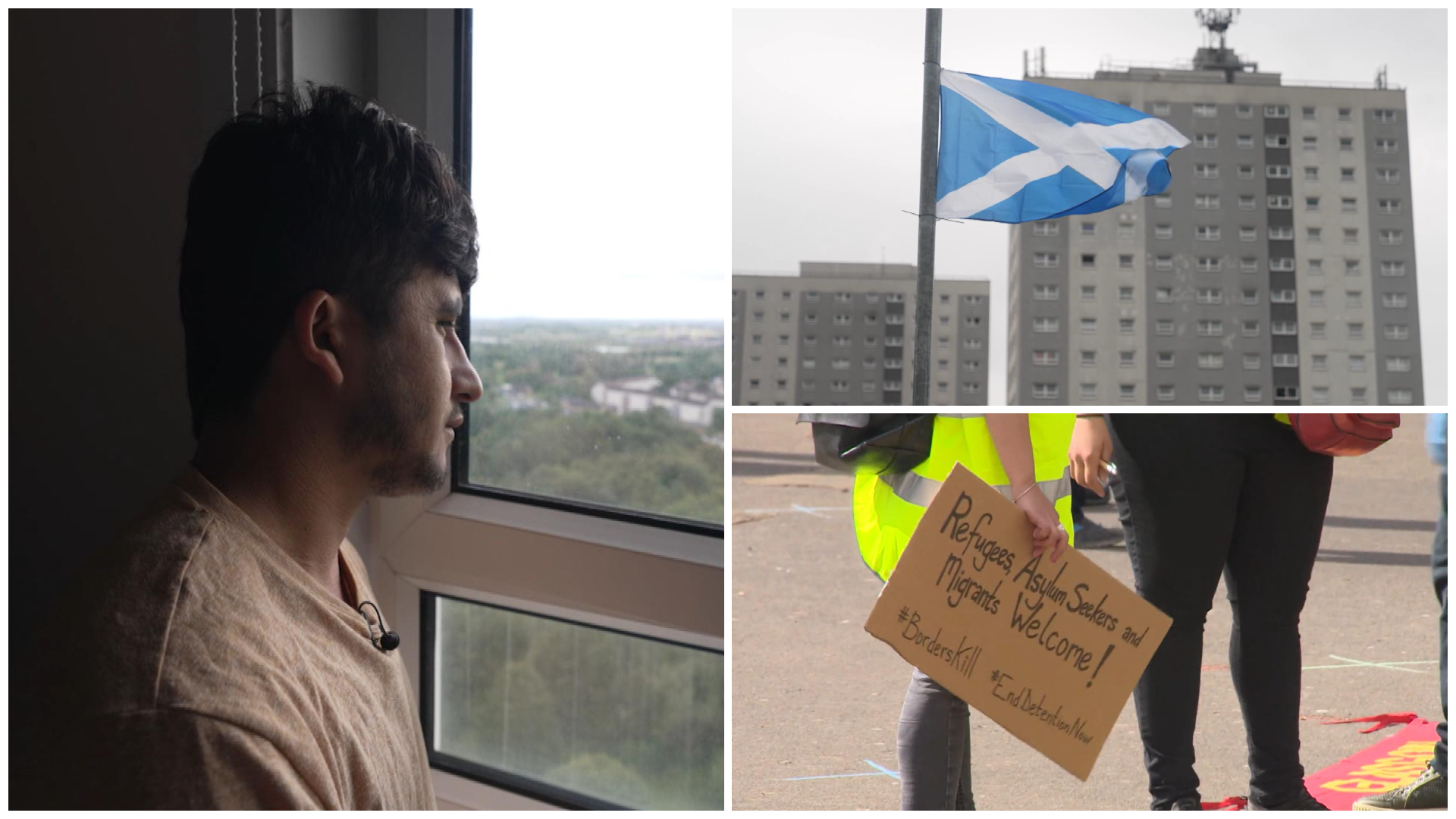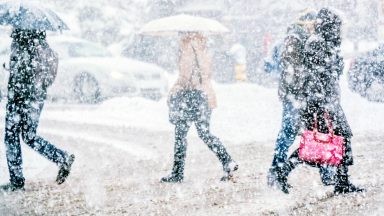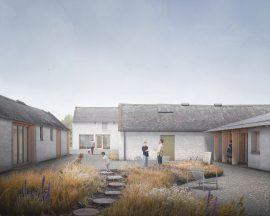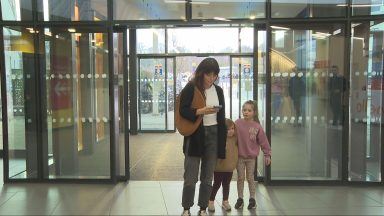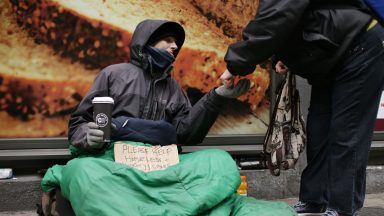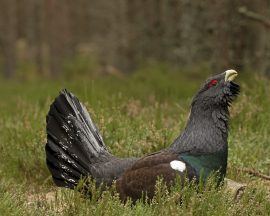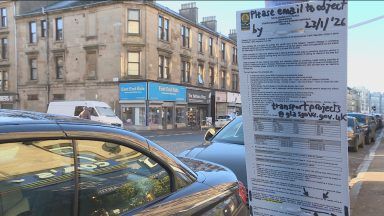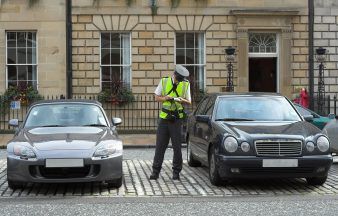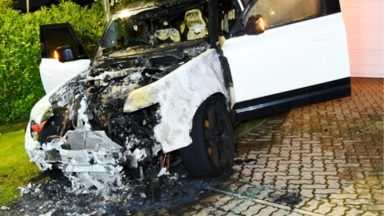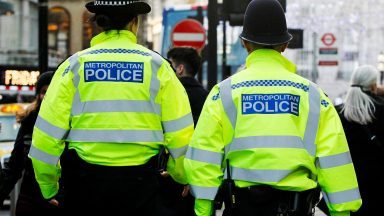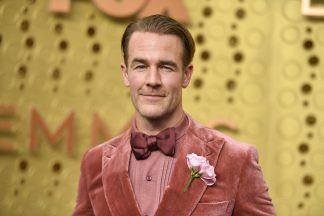Pressure has pushed the city into a housing emergency, as ITV News Correspondent Peter Smith and Scotland Producer Stephanie Docherty report
The majority of all asylum seekers and refugees in Scotland are in Glasgow.
For decades, its people and politicians have proudly promoted it as a sanctuary city that welcomes everyone, no matter where they come from.
But that conscience is now coming with a cost.
The historically pro-immigration council is now warning that the rising numbers and a lack of UK government support are placing extreme pressure on the city’s housing and homelessness services.
Glasgow has more asylum seekers than any other local authority in the UK. Once people are granted leave to remain and become refugees, they are no longer the responsibility of the Home Office but of the council.
Scotland has more generous homelessness laws than the rest of the UK, which means Glasgow has a responsibility to house every asylum seeker who becomes a refugee.
This pressure has pushed the city into a housing emergency.
More than half of those in temporary accommodation are now refugees.
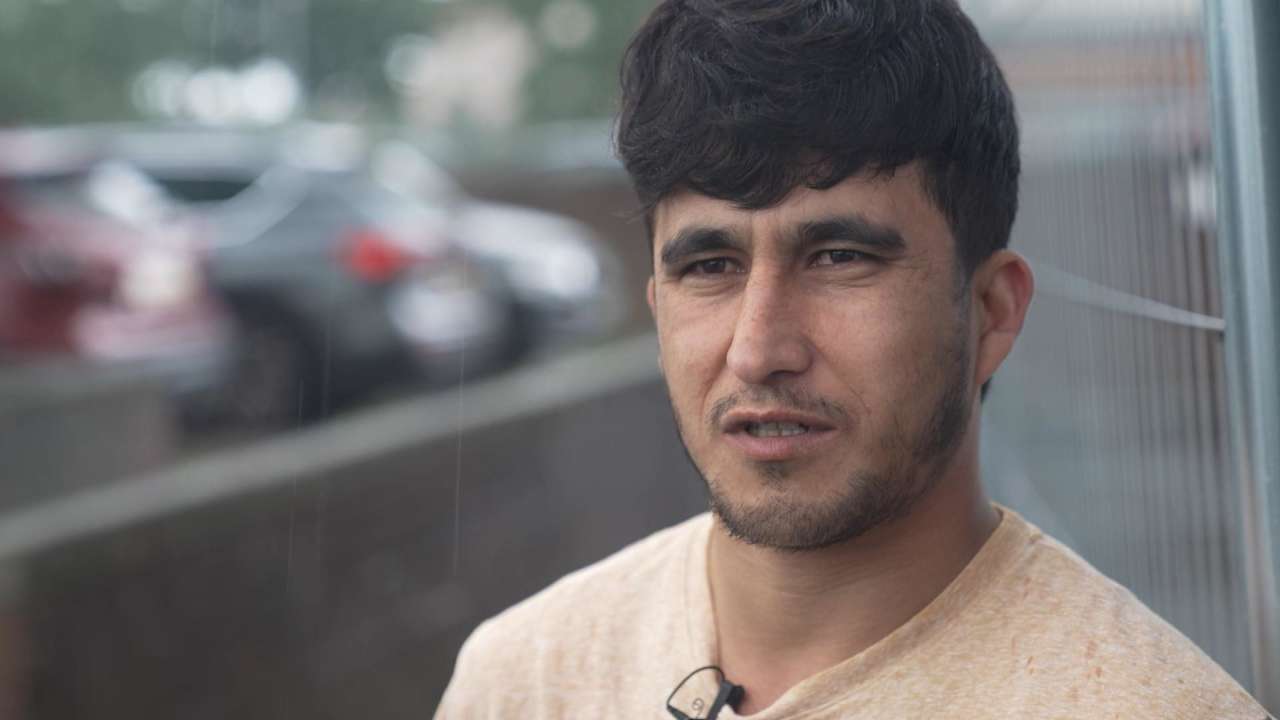
Unprecedented numbers of new refugees are also now travelling from other cities to Glasgow – because they know it is their best hope for a home.
Qasim is an asylum seeker from Afghanistan. He came to the UK on a small boat earlier this year.
He has just been moved to another temporary home – this time to a two-bedroom flat which he will be sharing with three men he has never met.
There are no so-called asylum hotels in Glasgow, and instead, everyone is put into shared housing like this.
”I get moved around in Glasgow but as an asylum seeker I do get a home,” Qasim said.
“If I get refugee status, I am made homeless and then join a waiting list for permanent accommodation. There are so many refugees here now it takes a long time.
“I was two years old when the UK bombed my country and told us to help them fight the Taliban. My parents were killed. If I go back, they will kill me too. The legal routes to come here were all blocked. Going on a boat was a risk I had to take.”
If Qasim is allowed to stay, he will join the long list of those waiting for a home in Glasgow.
For decades, the city has proudly stated that “refugees are welcome here”, but the council leader told us this is now a message they may need to reconsider if they don’t get support from the Home Office.
“[What] we’re looking at is around a £90 million budget gap for Glasgow, and about £66 million of that is homelessness overspend,” Council Leader Susan Aitken said.
She says this has been directly created by the large number of homeless refugees.
She says it is due to “the pressure of the mass processing of people who are refugees already in the city and then exacerbated by people travelling from other parts of the UK”.
She describes it as “a perfect storm” and says the council is now at the point where it is struggling to say that refugees are welcome.
“That’s not because we don’t want to welcome refugees. We want to be able to continue welcoming refugees. What we’re seeing is, if the UK government doesn’t step up to its responsibilities and help us meet our responsibilities, then that is going to become unsustainable. And it is already fast becoming unsustainable.”
It’s not just in the city chambers where attitudes are visibly changing.
Scotland flags have begun appearing on lampposts across the city, concentrated in areas with large numbers of asylum seekers and refugees.
This is Scotland’s contribution to the Raise The Colours campaign seen in England – partly patriotic pride, partly an anti-immigration message to politicians.
Some of the people who live here told us the message behind the flags is not about racism but is intrinsically linked to their city’s housing crisis.
Ashley is a support worker. She lives in a top floor flat, meaning her disabled partner can’t move in with her and her daughters.
They’ve been waiting for years for suitable accommodation.
She is supportive of the flags but she wants to be clear: the anger is not towards the refugees but the politicians.
“I think they’ve made us resentful because the government has not really thought about it, they’ve just done it,” she said.
“In this area, everybody used to know everybody, but now nobody knows anybody because the government are just filling them with anybody and everybody. We don’t know these people. And it’s not because I am a racist. I love them all equally and I do understand that these people are fleeing from a difficult situation but at the same point we are in a crisis.”
This flags protest is spreading – with more being put up on new streets each night across Glasgow.
Abdul Bostani runs a charity that helps refugees and asylum seekers here, and he says there are clear concerns that the housing crisis is being used to stoke tensions.
“I will say there are small elements of people, unfortunately, that have been brainwashed to think asylum seekers are responsible for everything wrong in our society, which is not true.
“The vast majority of them are very vulnerable people. They need our support. They need our love.”
“We need to welcome them. These people have come over horrific, horrific stories, horrific situations in their lives, like when they are very, very vulnerable. They need our support, not our hate.”
For the many thousands coming here each year, seeking safety and a future, they are arriving to a different Glasgow than they would have in the past.
They are coming to a city where conscience is now in conflict with capacity and in some areas where welcome signs are being replaced with national flags.
Follow STV News on WhatsApp
Scan the QR code on your mobile device for all the latest news from around the country


